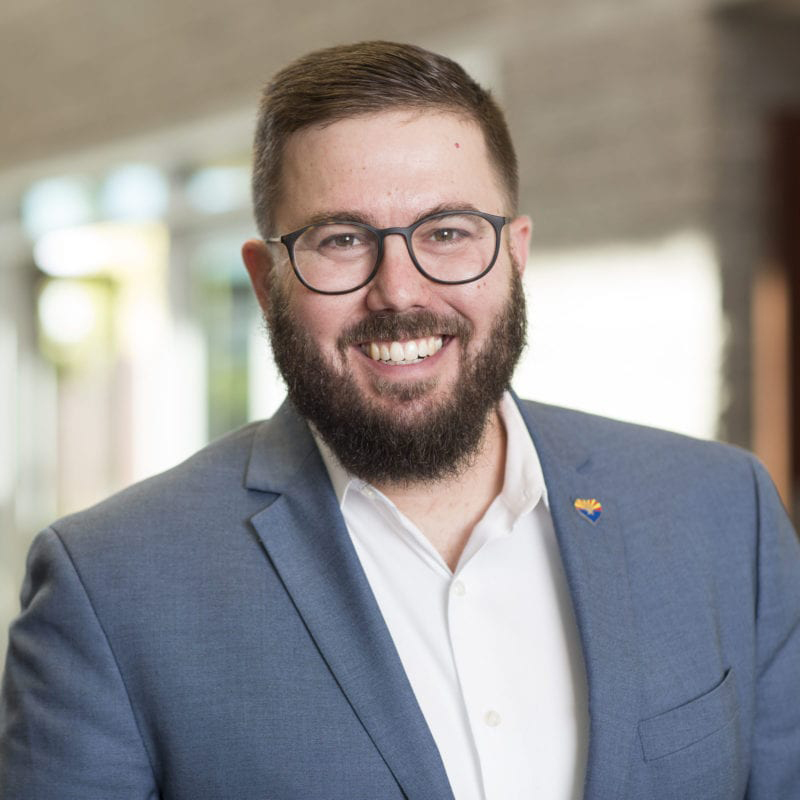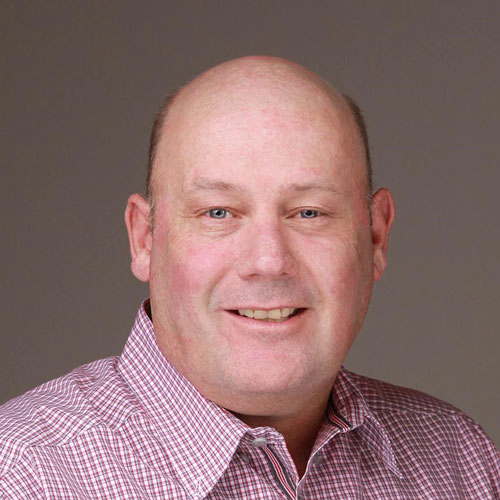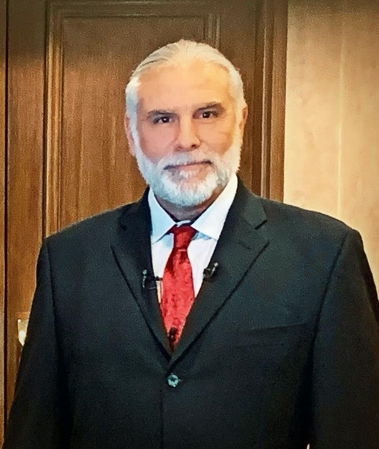
The Cannabis Reporter Radio Show Podcast
[email protected] (Snowden Bishop)
We envision a more sustainable and prosperous future born from a renewed awareness about cannabis.
- 44 minutes 2 secondsHow Social Equity Laws Open Doors Once Shut to Marginalized Cannabis Entrepreneurs
About This Episode
The cannabis industry has brought lucrative returns for the fortunate entrepreneurs who have had access and means to enter this competitive space. Unfortunately, not everyone has either one, much less both. Access has always been a challenge, even in states that have already legalized cannabis for adult use. Most states require licenses to operate dispensaries, manufacturing laboratories and cultivation facilities. Applying for a license can be an expensive, laborious process, often requiring applicants to undergo background checks, navigate rigid regulatory requirements and pay hefty, non-refundable application fees. Then they wait. Qualification does not guarantee that an applicant will be granted a license, and the selection methods vary by state.
What doesn’t vary by state is the way the process has excluded some aspiring entrepreneurs who lack sufficient capital and disqualified others when a background check uncovers a felony marijuana offense.
Federal legalization has potential to level the playing field and make it easier for those marginalized entrepreneurs to compete for the coveted licenses. In the meanwhile, some states have begun to write social equity provisions into their medical and adult-use cannabis laws. Nonprofit organizations have also stepped up to provide resources, mentorship, capital sources and legal support necessary to not only qualify for state licenses but also launch a thriving cannabis enterprise.
Our guest, Samuel Richard has been advocating for social equity in the cannabis industry as the Executive Director of Arizona Dispensaries Association and shares some amazing insights.
About Our Guest
 Samuel Richard, Executive Director of Arizona Dispensaries Association
Samuel Richard, Executive Director of Arizona Dispensaries Association
Samuel Richard is the Executive Director of the Arizona Dispensaries Association (ADA), which serves as the political and legal voice of Arizona’s cannabis industry dedicated to advancing best practices through advocacy, education and mentorship. With a degree in nonprofit leadership and management from Arizona State University’s College of Public Service and Community Solutions. Known for his expertise in complex government affairs, communications, and media plans, he has been recognized by the Arizona Capitol Times in its inaugural Breakouts Award highlighting “the sharpest political minds in the state.” He was previously recognized in the Phoenix New Times’ Best of Phoenix as Best Lobbyist and by the Phoenix Business Journal as a member of the 2013 class of Forty under 40. He also holds certificates from both Valley Leadership and the Center for Progressive Leadership and is also a Fellow of the Flinn-Brown Civic Leadership Academy.
Go to WebsiteAcknowledgements
We appreciate our partners!
If not for the generosity of our partners and sponsors, we wouldn’t be here! We’d first like to express gratitude for our radio sponsor Sunstate Technology Group and Cannasphere Biotech. We are grateful! We’d also like to shout out to XRQK Radio Network and Society Bytes Radio Network for broadcasting our show and Cannabis Radio for helping us spread the word online. Theme song “Evergreen” by Erik Godal. © Snowden Bishop 2021-All Rights Reserved.
The post How Social Equity Laws Open Doors Once Shut to Marginalized Cannabis Entrepreneurs appeared first on The Cannabis Reporter.
2 December 2021, 10:33 am - 36 minutes 7 secondsPro Series: Cannabis Enterprise IT Reimagined to Mitigate Cyber Threats
Listen Now
Listen to the Cannabis Reporter Radio Show, Hosted by Snowden BishopAbout This Episode
Welcome to another edition of The Cannabis Reporter Pro-Series! This interview features Sunstate Technology Group’s Director of Operations, Stuart Hensley. For more than 15 years, Sunstate has delivered state-of-the-art IT support and network consulting to small, medium and enterprise-level businesses as well as municipal agencies like police and fire departments, emergency medical services and other government offices throughout the Southwest. Sunstate Technology Group also provides a range of technology solutions for the cannabis industry.
In recent years, information technology, or “IT,” has become an essential component of corporate infrastructure, not just to streamline operations, facilitate communications, manage inventory or track sales, but to also safeguard critical data with iron-clad firewalls and other vital security protocols. Today, that role of information tech could not be more crucial – as evidenced by the upsurge of ransom-ware attacks, data theft and other high-profile cyber security crimes.
The cannabis industry is not impervious to cyber threats and, in fact, may be as or more vulnerable due to the high-volume cashflow at the retail level and the need to safeguard information flow due to regulatory requirements imposed on all aspects of the industry from seed to sale. Having the right technology company on board has never been more important.
For that reason, we were thrilled to speak with Sunstate Technology Group’s Director of Operations, Stuart Hensley, who outfitted at Arizona’s largest cultivation operation with a scalable IT and security network spanning multiple retail and grow locations throughout the state. As a City Council member at that time, he was also key in securing approval for the facility by helping fellow local lawmakers overcome skepticism about the emerging cannabis industry in their region.
Read Interview TranscriptAbout Our Guest

With more than 25 years of experience in the field of information technology, Stuart Hensley has a wealth of knowledge about ways in which cannabis industry stakeholders can – and should – protect against and mitigate threats through advanced security and technology solutions. As a City Council member in Snowflake, Arizona in 2018, Stuart was instrumental in ushering approval of Copperstate Farms cannabis cultivation facility, which, at the time faced some public trepidation despite the dire need for jobs in a region. Fortuitously, Stuart was well-positioned to convince colleagues at the that the facility would be a safe bet for the community. In his role at Sunstate Technology Group, he took the lead in setting up Copperstate’s massive security system and IT network, which now spans numerous cultivation and retail facilities throughout the State of Arizona. The successful integration of scaleable network and security systems at Arizona’s largest cultivation operation has demonstrated ways in which Sunstate Technology Group’s systems benefit cannabis enterprises of all sizes.
 Go To Website
Go To WebsiteAcknowledgements
If not for the generosity of our supporters, we wouldn’t be here! We’d first like to express gratitude for our radio sponsors, Sunstate Technologies and Cannasphere Biotech. We are grateful! Many thanks go to Erik Godal for our theme “Evergreen” and Dr. Bryan Doner for the Medical Marijuana Minute. We’d also like to shout out to XRQK Radio Network and Society Bytes Radio Network for broadcasting our show as well as Compassionate Certification Centers and Cannabis Radio for helping us spread the word online. Image courtesy of Unsplash by Jefferson Santos. CC License.
The post Pro Series: Cannabis Enterprise IT Reimagined to Mitigate Cyber Threats appeared first on The Cannabis Reporter.
24 August 2021, 1:09 am - 42 minutes 17 secondsCannabis for Canines: A Veterinary Doctor’s Top Dos and Don’ts for Dogs and their Humans
About This Episode
Returning from a rather long hiatus, we’re happy to be back in the studio and hope that you and yours are staying safe and healthy.
Our very first interview on this show was with a New York State legislator who introduced the first cannabis legislation in 2015. Stephen Katz also happened to be a veterinarian, who was one of the first in the country to develop CBD supplements to treat dogs suffering with painful arthritis. So much has changed since then, and cannabis therapy for animals is now far more common than not for treating a wide variety of animal ailments, including cancer.
But not all cannabis therapies are good for all canines and, like their human companions, each has unique conditions that respond to cannabinoids differently according to their size, weight and breed. That happens to be something my guest today, Dr. Trina Hazzah knows a lot about. She is the author of Cannabis in Veterinary Medicine: A Critical Review, which was recently published in the Journal of the American Holistic Veterinary Medical Association – the only peer-reviewed scientific journal focusing exclusively on integrative veterinary medicine. She talked abut the study and offered some useful “Dos and Don’ts” pertaining to CBD and cannabis for dogs, and their human companions.
About Our Guest
 Veterinary Oncologist Dr. Trina Hazzah
Veterinary Oncologist Dr. Trina Hazzah
Trina Hazzah, DVM, DACVIM (Oncology) was born and raised in Washington DC. She attended Tuskegee University School of Veterinary Medicine where she earned her Doctor of Veterinary Medicine in 2006. She completed her small animal internship at Red Bank Veterinary Hospital in New Jersey and a 3-year residency in medical oncology at the Veterinary Oncology and Hematology Center, in Connecticut. She has also completed the requirements to be a Certified Veterinary Chinese Herbalist from the Chi Institute of Traditional Chinese Veterinary Medicine.
Dr. Hazzah developed an interest in cannabis medicine during her quest for finding effective integrative approaches for veterinary cancer patients. She has spent the last half a decade reading through available literature, attending multiple cannabis conferences and symposiums, while also learning from cannabis physicians. She has since given numerous lectures to veterinarians educating them on the topic of cannabis medicine. Dr. Hazzah is a founder and the co-president of the Veterinary Cannabis Society and a member of the Society of Cannabis Clinicians, Canadian Association of Veterinary Cannabinoid Medicine, Veterinary Cancer Society, American Holistic Veterinary Medical Association and California Veterinary Medical Association.
Go to WebsiteAcknowledgements
We appreciate our partners!
If not for the generosity of our partners and sponsors, we wouldn’t be here! We’d first like to express gratitude for our radio sponsor Cannasphere Biotech. We are grateful! We’d also like to shout out to XRQK Radio Network and Society Bytes Radio Network for broadcasting our show and Cannabis Radio for helping us spread the word online. Theme song “Evergreen” by Erik Godal. © Snowden Bishop 2020-All Rights Reserved.
The post Cannabis for Canines: A Veterinary Doctor’s Top Dos and Don’ts for Dogs and their Humans appeared first on The Cannabis Reporter.
6 February 2021, 2:13 am - Cannabis Media Keep Socially Distant Companies & Consumers Connected
About This Episode
Returning from a rather long hiatus, we’re happy to be back in the studio and hope that you and yours are staying safe and healthy in this challenging era we’re living through. It goes without saying that COVID-19 has impacted so many of us in just about every aspect of life with disruptions to the way we live, work and interact with one another. What’s been particularly challenging is finding ways to bridge the chasm between science and the national response, which has left most of us relying on trusted media, medical advisors and our better judgement to navigate daily business and inform choices we make to survive in a healthy way.
What has been amazing to watch is how adaptable we have become. The cannabis industry is no exception. We are fortunate that most state leaders have had the fortitude to deem cannabis businesses as essential so that they can continue to help patients access the medicine they need to stay healthy. That has created new challenges for cannabis businesses, who must still find a way to produce and market their products. Before COVID, trade shows and expos provided business leaders with effective channels for networking and educating the public, and provided consumers with a great way to learn about new products and speak with experts about ways in which cannabis can improve their health. Since those public gatherings have been out of the question in this era of social distancing, trade publications and online events like Canna World Expo have provided effective alternatives for both consumers and companies.
But when it comes to media, there are still challenges having to do with the legal disposition of cannabis. The FDA has yet to name hemp CBD as “Generally Recognized as Safe” since granting Epidiolex approval to be recognized as a “Drug.” While, at the time, that appeared to be good news for the industry, as most thought it would pave the way for eventual legalization of CBD, in reality, it actually rescheduled CBD, even that extracted from hemp, rather than remove CBD from the schedules of the Controlled Substances Act.
That created more of a gray area when it comes to advertising and marketing CBD to the public. There’s only so much a cannabis producer can say about their products to educate consumers without receiving a dreaded notice from FDA watchdogs. And, in the absence of expos and educational events, businesses have become more reliant on both consumer and trade publications to connect with one another and meet consumers’ growing demand for information about their products.
Now, more than ever, businesses and consumers must rely upon editorial media providing information about ways in which cannabis can help to strengthen their immunity and protect them from the inflammation that makes infectious diseases like COVID so deadly. That’s the topic of this episode and who better than a media expert to answer questions about how media can fill those gaps.
About Our Guest
 Frank Lane, president of CFN Media Group
Frank Lane, president of CFN Media Group
Frank Lane is the founder and president of Cannabis Financial Network (CFN) Media Group, a publicly traded company. He has unique perspective about how cannabis companies have adapted to challenges posed by a global pandemic. Before focusing on the emerging cannabis and CBD markets and launching CFN Media in 2013, Frank spent the previous 15 years disrupting financial media to build and scale new products and services that drive revenue and growth. He was responsible for rolling out a targeted press release platform used by NASDAQ’s Globenewswire in 2009. Frank has worked with leading companies and brands in the global capital and consumer markets to deliver digital communications strategies and services that help them thrive.
Go to WebsiteAcknowledgements
We appreciate our partners!
If not for the generosity of our partners and sponsors, we wouldn’t be here! We’d first like to express gratitude for our radio sponsors Blue Mountain Energy and Cannasphere Biotech. We are grateful! We’d also like to shout out to XRQK Radio Network and Society Bytes Radio Network for broadcasting our show and Cannabis Radio for helping us spread the word online. Theme song “Evergreen” by Erik Godal. Cover image: Photo by Étienne Godiard with revision © Snowden Bishop 2020-All Rights Reserved.
The post Cannabis Media Keep Socially Distant Companies & Consumers Connected appeared first on The Cannabis Reporter.
20 July 2020, 2:31 pm - Restoring Balance: Happy Plants, Healthy People & Hope for Our Future
About This Episode
There’s no denying this has been another week of devastating losses of life in numbers that are impossible to comprehend. These aren’t just statistics. Behind every number is a precious soul, someone’s loved one who will be sorely missed. The cannabis community suffered the loss of a child whose extraordinary journey helped to galvanize the movement to legalize medical cannabis in multiple states. Charlotte Figi’s parents were forced to move to Colorado where they could legally purchase the CBD she needed to control epileptic seizures. Charlotte’s Web, the medicine created by the Stanley Brothers in her name, has since helped so many other children lead healthier lives. We’re embracing her family in love, light and healing prayers. It’s our hope that they can find peace that transcends human understanding in knowing that their daughter’s legacy is something all of us in this industry will appreciate for generations.
If there’s a glimmer of hope that some good can come out of so much devastation and frustration of forced isolation, it may be found in the space cleared for quiet reflection about how we got here and how we can recover normalcy in a healthier, more sustainable way.
The emergence of COVID-19 didn’t happen by accident and is more of a symptom of an imbalance that we – humans – may have caused. The ordinary distractions of every-day life impact our health on so many levels. Our contributions to the earth’s imbalance make us partly to blame for the cataclysmic events that threaten our own survival. The ways in which we extract resources, poison the land that provides nutrients for the food we eat and put blind faith into the pharmaceutical industry have left us vulnerable to the pestilence that thrives in such unsustainable circumstances.
We come from the earth, we live of the earth, and we return to the earth. In nature, plants draw minerals and nutrients from the soil. Throughout their life cycle, they drop leaves, which decay and enrich it with micro-biotics and humuric acids. Under the canopy of the mature plant, the fertile ground supports new seedlings that take root and grow. When the plants die, they return to the earth, replenish the soil for new plants, which mature by drawing from the replenished soil to repeat the cycle. That is the process of entropy, which has naturally occurred since the first vegetation appeared on Earth. Everything we consume, from the food that nourishes our body to the medicine we take to stay healthy, is the end result of what we put into and take from the earth.
The disruption of our natural ecosystems, dependence on fossil fuels and unsustainable agricultural practices that have ensued since the Industrial Revolution explain why there is so much disease in our society today. It also explains why minimizing contaminants at every stage of growth from soil to canopy is crucial to our food security and public health. That’s the topic of today’s show and something our guest, Dino Changanqui, knows a lot about.
About Our Guest
 Go to Website
Go to Website
Also known as “The Happy Plant Guy,” Dino Changanaqui has a diverse background with 20+ years of experience in sustainable business development in world markets with a focus on producing contaminant-free food and botanicals in state-of-the-art scalable facilities that he designs. As founder and owner of Amal Gold Nutrients, Inc., he is a designer of custom blended organic fertilizers and insecticide specifically designed for the developmental needs of plants including cannabis.
As a Consultant, Changanaqui advises farms of all sizes on the importance of organic agriculture inputs for purity and frequently lectures on the importance and benefits of consuming nutrient-dense organic food grown in mineral-rich organic soils. His efforts expanded awareness and the power of self-healing for those in the recovery of cancer for Cancer Support Community Los Angeles. Across Los Angeles County, Changanaqui also donated his plant nutrient line of products to develop gardening protocols for Enrich L.A.‘s 60 + non-profit school garden programs across Los Angeles County. Dino has also sponsored The Long Beach Veterans Administration Hospital Veteran Gardens Program with his products. This program helps military veterans in managing their PTS through gardening.
The Craft Gardener book written by Changanaqui is due in 2020. “Happy Plants, Happy People, Happy Planet” is his motto.
Acknowledgements
We appreciate our partners!
If not for the generosity of our partners and sponsors, we wouldn’t be here! We’d first like to express gratitude for our radio sponsors Blue Mountain Energy and Cannasphere Biotech. We are grateful! We’d also like to shout out to XRQK Radio Network and Society Bytes Radio Network for broadcasting our show and Cannabis Radio for helping us spread the word online. Cover image: Bigstock Images with revision © Snowden Bishop 2020-All Rights Reserved.
The post Restoring Balance: Happy Plants, Healthy People & Hope for Our Future appeared first on The Cannabis Reporter.
14 April 2020, 11:29 pm - 58 minutes 14 secondsHow Media Lend Credence to the Cannabis Conversation
Listen Now
Listen to the Cannabis Reporter Radio Show, Hosted by Snowden BishopAbout This Episode
For those of us who have worked in cannabis media for any length of time, the topic of has become normalized to the point that it’s easy to forget that there is still a stigma associated with it and that it’s still entirely inaccessible in more than a dozen states, even for medical use.
The fact is that cannabis enterprise has a long way to go before it is normalized like any other mainstream industry. While Congress recognizes the industry’s unique problems, lawmakers have stopped short of solving them. Take, for instance, the insidious barriers to interstate banking, which bars cannabis companies from conducting efficient transactions. Despite the groundbreaking legislation known as the Safe Banking Act, big banks are still arbitrarily closing bank accounts of sizable, legitimate and legal cannabis businesses. Just the other day, JP Morgan just closed all of the corporate bank accounts and credit cards of a well-established hemp tech company that specializes in building materials made of hemp biomass. This happened not more than a week after PayPal did the same. What makes this most perplexing is the fact that hemp has been legal to grow in the U.S. since the passage of the 2018 Farm Bill.
It would seem that these arbitrary actions are made out of ignorance, if not an abundance of misinformed caution – federally-regulated banks are required to comply federal laws. Actions like these make it obvious the bankers were not aware of the recent policy reforms. It also obviates the consequence of stigma born from decades of prohibition.
Stigma exists in darkness, and cannabis is not a topic that gets a lot of airplay in mainstream media, which drives home the importance of media outlets that shed light on the topic – not just to educate bankers abiding by arcane laws, but to make the subject of cannabis palatable to a public mired in skepticism since Reefer Madness.
CNN’s Dr. Sanjay Gupta was among the first to break through the stigma when the series called “Weed” debuted in 2014. Having earned public trust as the network’s Chief Medical Correspondent, his voice gave the topic credence and sparked widespread mainstream interest in a way that well-known advocates had been trying to do for years. Since Weed first aired, more than a dozen states have legalized cannabis and at least as many cannabis policy reform bills have been introduced in Congress.
Acceptance has grown since then, as has awareness, but it would seem the more we learn about cannabis, the more we realize there’s so much more to learn. It’s incumbent upon all of us in public media who focus on cannabis to keep the conversation going. That’s the topic of today’s show and our guest, Lewis Goldberg, is doing just that as host of The Green Rush podcast.
About Our Guests

For more than 20 years, Lewis Goldberg has been a thought leader in public affairs, implementing programs designed to build business with a campaign mentality. He has worked in national, state and local politics for President Bill Clinton, Senator Robert Torricelli and then-First Lady Hillary Rodham Clinton. As a Managing Partner at the East Coast PR group, KCSA, he co-founded the firm’s cannabis practice. As the co-host of KCSA’s weekly podcast, The Green Rush, he has become recognized as one of the most effective strategic thinkers in this growing field.
Go To WebsiteAcknowledgements
If not for the generosity of our partners and sponsors, we wouldn’t be here! We’d first like to express gratitude for our radio sponsors Blue Mountain Energy and Cannasphere Biotech. We are grateful! Many thanks go to Erik Godal for our theme “Evergreen,” and to Cano of Clan/Destine for the music track used in this show. We’d also like to shout out to XRQK Radio Network and Society Bytes Radio Network for broadcasting our show and Cannabis Radio for helping us spread the word online. Cover image: © Snowden Bishop 2020, All Rights Reserved
The post How Media Lend Credence to the Cannabis Conversation appeared first on The Cannabis Reporter.
18 March 2020, 1:28 pm - Cannabis Nation: How The Sacred Herb Revitalizes Native American Communities
Listen Now
Listen to the Cannabis Reporter Radio Show, Hosted by Snowden BishopAbout This Episode
The cannabis industry has triggered a lot of interest and debate for the indigenous people living in sovereign tribal nations in the USA and Canada. For thousands of years cannabis was considered a staple resource that was revered among tribal cultures for its practical, spiritual and medicinal benefits. But ever since the passage of the Controlled Substances Act of 1971, it has been a source of conflict between the U.S. Federal Government and Tribal Councils. Despite autonomy of the sovereign nations and Federal legislation granting sovereign tribal nations authority to pass their own laws pertaining to hemp and cannabis, the federal government has repeatedly imposed sanctions on reservations that fail to comply with federal laws. While cannabis should have offered a way out of the cycle of dependence and poverty, the treaty has been a source of confusion because, as one U.S. Attorney remarked, it encourages investment, but after the investment is made the federal government shuts it down and the investors lose all their money.
This problem persisted on Pine Ridge Indian Reservation, an area covering 20 million acres of land in South Dakota, where members of the Oglala Sioux and Lakota tribes began investing in hemp as a means to generate economic growth, end unemployment and solve environmental issues by replacing petrochemicals with hemp as a renewable resource. Their efforts were thwarted by multiple DEA raids resulting in prosecution and the destruction of their crops. Ironically, their persecution for growing the sacred herb, a sustainable alternative to fossil fuels, was dwarfed by a greater confrontation with the federal government for protesting the Keystone XL Pipeline that threatened to not only disrupt the ecological balance tribal lands but contribute to the escalating climate crisis.
While the conflicts with the DEA over hemp and cannabis have diminished some in recent years, a recent executive order by the Trump administration has reversed the Obama era directive to stop the Keystone XL Pipeline. Under the new order, a militarized police force was directed to impose brutal force if necessary to remove activists who dare to protest the destructive project. The bigger irony is that the crackdown on peaceful protesters will be paid for by a so-called Peace Fund.
What is important to note is that there is untapped power among indigenous people to regain control of their own destiny but it will take education and funding for them to realize it. Hemp and cannabis can play a major role if they choose to embrace it. Now that Hemp is legal everywhere in the U.S., there is an opportunity for them to reclaim it as a sustainable cash crop that will not only provide a lucrative economic boost for reservations but, with the right investment in infrastructure, could enable them to take the lead in replacing fossil fuels for a more sustainable future. Same goes for medicinal cannabis, which they are free to cultivate, research and distribute within their sovereign nations without interference – should they exercise their right to do so.
That’s the topic of today’s show and something our guests, Juan Cano Sanchez and Dr. Vahan Setyan know a lot about.
 Cano Sanchez and Dr. Vahan Setyan with Snowden Bishop on The Cannabis Reporter Radio Show
Cano Sanchez and Dr. Vahan Setyan with Snowden Bishop on The Cannabis Reporter Radio Show
About Our Guests

Juan Cano Montego Sanchez is a dynamic entrepreneur and Principal Member of Linear Consultants LLC, President of Silver Moon Productions, Chief Executive Officer of Freedom Services LLC, and Founder and Director of Operations of Operation Peace Project, a tribal 501(c) non-profit organization. Serving in the field of psychiatric nursing for decades in Arizona and working with institutions such as Summit Place, Victory Place and Desert Vista Hospital, he joined and co-founded the Native American healthcare initiative on palliative services – Palliation Collaborative, LLC, a chronic disease prevention, management and palliation network serving veterans, urban Native Americans and underserved communities throughout the U.S., expanding the collaborative and associations of healthcare professionals and community leaders to battle chronic disease management and end-of- life care for the terminally ill children, elders and veterans. Throughout his life, he has worked diligently to raise awareness of and help prevent teen and veteran suicide through music arts, entertainment, media, movies and community events. A person of Lakota, Pueblo, and Spanish descent, Cano is also the Frontman and Lead Vocalist of Clan Destine, winner of a Native American Music Award in the category of Pop and Rock. Host and Executive Producer of CLAN-DESTINE LIVE online variety show, Clan-Destine received the Governor’s Award of Excellence by the State of Arizona. He cherishes and embraces the love and respect of his wife, children, friends, family and the communities he serves.
Go To Website
Dr. Vahan Setyan is an economic development advisor and a recognized expert in urban and tribal healthcare development, implementation and management. He currently serves as an Authorized Agent and Economic Development Advisor in the Navajo Nation under the auspices of the San Juan River Navajo Nation Farm Board on federal and foreign affairs related to strategic business implementations in industries such as energy, healthcare, agribusiness, banking, gaming, hospitality, and technology. He is also Chief Executive Officer and founder of Native American Pharmacy and NutraNative Corporation, and as Founder of Palliation Collaborative, he recently brought, for the first time in history, hospice and related services to the Navajo Nation, Executive Emeritus of Sacred Canyons Project, a non-profit to serve tribal healthcare and economic development needs. In 2006, he received a permanent honorary membership to Psi Chi, the International Honor Society in Psychology. In November of 2014, Mr. Setyan received the Elite American Executive award by National Council of American Executives. In April 2019, he was selected for the Top 100 Healthcare Leaders award by the International Form of Advancements on Healthcare. In June 2019, out of 90 nominees, he was one of the top 5 finalists in the 2019 Outstanding Alumni Award. Mr. Setyan serves as a Board Member of a southern California-based non-profit healthcare organization and Board Member at an Arizona- based non-profit hospice organization. He is also a participating member of Association of Former Intelligence Officers.
Go To WebsiteAcknowledgements
If not for the generosity of our partners and sponsors, we wouldn’t be here! We’d first like to express gratitude for our radio sponsors Blue Mountain Energy and Cannasphere Biotech. We are grateful! Many thanks go to Erik Godal for our theme “Evergreen,” and to Cano of Clan/Destine for the music track used in this show. We’d also like to shout out to XRQK Radio Network and Society Bytes Radio Network for broadcasting our show and Cannabis Radio for helping us spread the word online. Cover image: © Snowden Bishop 2020, All Rights Reserved
The post Cannabis Nation: How The Sacred Herb Revitalizes Native American Communities appeared first on The Cannabis Reporter.
19 February 2020, 1:21 pm - How Cannabis Innovators Avert Poachers & IP Pitfalls
Listen Now
Listen to the Cannabis Reporter Radio Show, Hosted by Snowden BishopAbout This Episode
Ever since California legalized cannabis for medical use in 1996, mom and pop cultivators, formulators and product makers have been developing innovative formulations and cross-breeding strains to create new cannabinoid profiles targeting a variety of medical conditions. As the industry was operating legally in states despite the vexing federal prohibition, these innovators had a unique opportunity to name their new varietals, which publications like Leafly would eventually catalogue along with each strain’s cannabinoid and terpene profiles, potency and intended medicinal effect. One of the more notable is Charlotte’s Web, developed in Colorado by the Stanley brothers for a pediatric epilepsy patient named Charlotte.
At the time, Since legal cannabis was limited to only a handful of states, the threat of competition by large pharmaceutical companies or outside influence was practically non-existent.
So, when cannabis industry pioneer Steve DeAngelo began warning entrepreneurs and innovators about the importance of protecting everything they create decades ago, not everyone listened. During a keynote address at an early industry event he urged stakeholders to get lawyers on board as a first order of business and said, “If you don’t have that relationship with a good IP attorney, you’re going to make a whole lot of other people very rich.”
The sad truth is that there were companies working quietly behind the scenes developing their own cannabis-based drugs and locking down patents. While the Stanley Brothers were first on the market with a strain of CBD they developed to treat a little girl’s epilepsy, GW pharmaceuticals later became the first to receive FDA-approval for the use of CBD for treating epilepsy, which rendered the development and sale of all other CBD products intended for epilepsy, and other medical conditions, off limits. GW has since filed nearly a dozen patents, which no doubt will overlap with earlier innovations developed by entrepreneurs who failed to heed Steve DeAngelo’s advice.
Fortunately, Charlotte’s Web survived without threat of infringement, but mostly because the Stanley brothers sought legal support from an experienced patent attorney, David Postolski. He joined us from Israel to explain how cannabis innovators can best protect themselves and their intellectual property in today’s ever more competitive market.
About Our Guests

David Postolski, a partner at Gearhart Law, is a registered patent and Intellectual Property attorney with more than 17 years’ experience in the cannabis IP space. His practice is focused on assisting inventors, creatives, entrepreneurs and companies protect, enforce and monetize their intellectual property. protection, enforcement and monetization. David is also a Professor at Temple University and Parsons School of Design where he teaches master level students about IP, ethics and other regulatory considerations in business ventures and product design. David is the current Continuing Legal Education (CLE) Officer of the American Bar Association Section of Intellectual Property Law and founder of their International Action Group and editor of their monthly newsletter. David is a frequent speaker and author on intellectual property issues pertaining to emerging technologies and has advised clients in the cannabis sector for more than a decade. I should note, he will also be speaking at the upcoming CBD Expo in Las Vegas this coming weekend. Today, he’s joining us from Israel, where he has been living. David, thank you so much for joining me. I’ve been looking forward to this conversation.
Go To WebsiteAcknowledgements
If not for the generosity of our partners and sponsors, we wouldn’t be here! We’d first like to express gratitude for our radio sponsors Blue Mountain Energy and Cannasphere Biotech. We are grateful! Many thanks go to Erik Godal for our theme “Evergreen.” We’d also like to shout out to XRQK Radio Network and Society Bytes Radio Network for broadcasting our show and Cannabis Radio for helping us spread the word online. Be sure to check out the USA CBD Expo in Las Vegas February 13-15! David will be speaking about Intellectual Property and Patent Protection for cannabis innovators.
The post How Cannabis Innovators Avert Poachers & IP Pitfalls appeared first on The Cannabis Reporter.
11 February 2020, 10:10 am - Contaminated Cannabis: What You Don’t Know Can Hurt You
Listen Now
Listen to the Cannabis Reporter Radio Show, Hosted by Snowden BishopAbout This Episode
When news broke about fatalities caused by vaping, it was shocking to learn that products that are meant to be safer than smoking could be killing people. The sad truth is that too many people have died and suffered serious internal injuries after using vape pens. While many vaping deaths were associated with e-cigarettes with nicotine cartridges, it was disturbing to hear that some were associated with cannabis vape cartridges. This was a wake-up call for the cannabis industry – and new grounds for consternation about whether or not cannabis is safe for public consumption.
To be clear, the cannabis plant in its purest state is not a lethal substance and has never killed anyone so it stands to reason that the oils used in the vape cartridges were contaminated. But with what? And, it seems like a betrayal to the entire advocacy movement that any manufacturer allowed a contaminated cannabis product to escape into the market. Medical marijuana is saving lives and patients need to trust that their medicine is not going to kill them.
As Americans, we put a lot of faith in the government oversight of our food and medicine supply. But, the truth is that few of us really know what they’re made of. Think about it – when was the last time you asked to see a certificate of analysis for a medicine prescribed by a doctor? How many people really think about the chemicals used to grow, process or preserve the foods we eat or question where exactly the prescription medicines we take were made? How many of us connect the food we ingest with the increasing prevalence of auto-immune diseases or cancer in our society.
The vaping crisis should serve as a wakeup call, not just for the cannabis industry, but for all of us to start paying more attention, asking more questions and demanding better oversight.
To be safe, a good rule of thumb is to buy only products that offer consumers full transparency and avoid those that don’t.
As for cannabis, most states require growers and manufacturers to test their ingredients and make certificates of analysis available to consumers upon request. But state-mandated testing of the cannabis plant substances may not be sufficient enough to detect all of the contaminants that led to the vaping deaths – cannabis producers need to also test their soil and substrates used to grow their plants. That’s the topic of today’s show and our guests unearthed some shocking revelations about the underlying cause of the vaping injuries. in a report they co-authored called Plant STDs.
About Our Guests

Auto-immune specialist Jessica Chandler and cannabis media expert Denise Mahaffey co-authored a report on PlantSTDs.com about their shocking discovery that substrates could be partly responsible for the poisons found in vape products that are making people sick.
As a PR specialist, Denise has represented clients in emerging and existing markets with a focus on cannabis enterprise and organizations that have been a catalyst for positive change. She is actively involved in advocacy groups such as NFL Pro Bowl Computers for Kids, XEROX N.A. Reseller Advisory Council and the U.S. Hemp CBD Media Industry Foundation since 2013. She is a “40 Under 40” Award recipient, Board Member of Dress for Success San Diego and producer and host of Inspire San Diego.
Jessica is an award-winning researcher and entrepreneur who specializes in the field of auto-immune diseases. Former President of SLR Research, a global auto-immune research and diagnostics company in Carlsbad, CA, she spent 20 years helping to set industry standards furthering auto-immune disease research and diagnostic standards.
Go To WebsiteAcknowledgements
If not for the generosity of our supporters, we wouldn’t be here! We’d first like to express gratitude for our radio sponsors Blue Mountain Energy and Cannasphere Biotech. We are grateful! Many thanks go to Erik Godal for our theme “Evergreen.” We’d also like to shout out to XRQK Radio Network and Society Bytes Radio Network for broadcasting our show and Cannabis Radio for helping us spread the word online.
Image sources: Civil Eats & Third Wave Farms
The post Contaminated Cannabis: What You Don’t Know Can Hurt You appeared first on The Cannabis Reporter.
10 January 2020, 11:37 pm - Pro Series: Cultivators Leverage Natural Gas to Save 80% on HVAC Costs
Listen Now
Listen to the Cannabis Reporter Radio Show, Hosted by Snowden BishopAbout This Episode
Welcome to another episode of The Cannabis Reporter Pro Series Podcast sponsored by Blue Mountain Energy, leading experts in energy efficiency and exclusive distributor of the Sierra Fresh Gas-Powered Climate Control Systems serving the cannabis industry.
Indoor cannabis cultivation requires precision climate control, which can be very costly when you factor in heat-intensive grow lights and the size of the canopy. Beyond the cost, energy burdens can present zoning and permitting issues, especially in areas where the local grid is already tapped. In fact, the amount of energy required per square foot of canopy could limit the size of your grow regardless of the size of your facility. Infrastructure upgrades to accommodate the amount of electricity you will need to maximize growing space in a large facility will cost a fortune.
What if you could actually increase the size of your canopy and, at the same time, reduce your HVAC electricity consumption and costs by up to eighty percent? Well, as I’ve learned in the last few weeks, Blue Mountain Energy has made that entirely possible and Eric Riccardi is here to explain how. Be sure to check out Blue Mountain Energy’s booth at MJBizCon in Las Vegas. Eric will be there and happy to answer questions about their remarkable technology.
Read MoreAbout Our Guest

Eric Riccardi has been working in all aspects of the HVAC/R industry, Research and Development of gas technology for the past 25 years and with Blue Mountain Energy and its previous group of companies, (IntelliChoice Energy, Team Consulting) for 20 years. In addition to being one of the development team, Eric serves as Vice President of Sales for Blue Mountain Energy, a manufacturer, research and development group, and exclusive manufacturer’s representative and service provider of Sierra and NextAire Gas Heat Pumps and associated technology. The past 15 years he has been primarily focused on gas heat pump technology and is factory trained and certified as a consulting engineer by NextAire, AISIN and Daikin. Eric is also currently an instructor at the College of Southern Nevada on the subject of Gas Heat Pump Technology.
 Go To Website
Go To WebsiteAcknowledgements
If not for the generosity of our supporters, we wouldn’t be here! We’d first like to express gratitude to our sponsoring partners at Blue Mountain Energy for contributing to our educational platform with this Pro Series episode. We’d also like to thank our radio sponsors, Sunstate Technologies and Cannasphere Biotech. We are grateful! Many thanks also go to our production team here at TCR, our theme composer Erik Godal and all of our many partners who help us spread the word. Last but not least, we thank you for listening! Please be sure to join us each week for The Cannabis Reporter Radio Show!
If you’d like to feature your company’s experts on The Cannabis Reporter Pro Series interview segment, please contact us to request a media kit. Sponsored content supports our mission to empower advocacy with education to foster the universal acceptance necessary for the industry to continue to grow and thrive. Please join us!

The post Pro Series: Cultivators Leverage Natural Gas to Save 80% on HVAC Costs appeared first on The Cannabis Reporter.
8 December 2019, 3:53 pm - Why the Green New Deal Should Green Light Investment in Hemp
Trent Paasch and Mike Lewis of Third Wave Farms explain how building out hemp infrastructure could help achieve the Green New Deal's carbon neutrality goals
The post Why the Green New Deal Should Green Light Investment in Hemp appeared first on The Cannabis Reporter.
19 November 2019, 1:24 pm - More Episodes? Get the App
Your feedback is valuable to us. Should you encounter any bugs, glitches, lack of functionality or other problems, please email us on [email protected] or join Moon.FM Telegram Group where you can talk directly to the dev team who are happy to answer any queries.
 Hempresent
Hempresent
 State Of Cannabis
State Of Cannabis
 Good News with Nurse Heather
Good News with Nurse Heather
 Cannabis Radio News
Cannabis Radio News
 Hempire
Hempire
 Cannabusiness Solutions
Cannabusiness Solutions